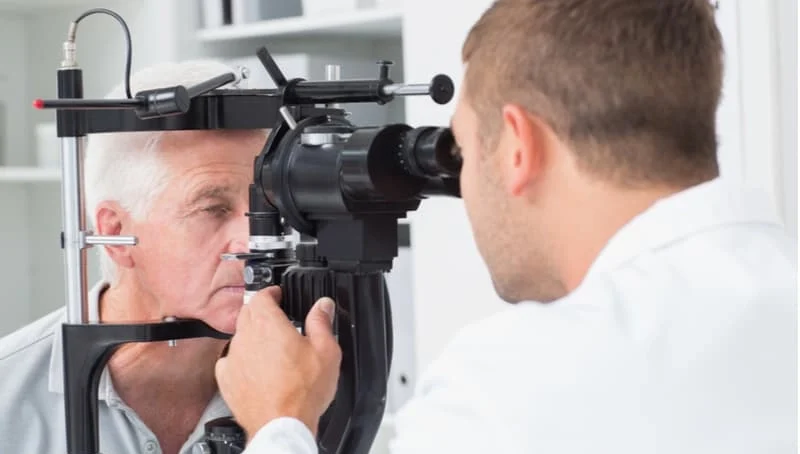Thyroid Related Eye Disease

Thyroid eye disease can occur in people who have an overactive, underactive or even normal thyroid gland function. It occurs when the muscles and fat in your eye sockets become inflamed and swell. Most commonly this is due to an autoimmune disease that attacks the normal tissues in your thyroid gland and eyes.
Symptoms of Thyroid Eye Disease
- Dry eyes
- Gritty feeling
- Bulging eyes
- Eye redness and swelling
- Double vision
- Upper eyelid retraction
- Irritation
- Light sensitivity
- Decreased vision
- Eye pain
Besides impacting vision and causing discomfort, serious cases of thyroid eye disease can cause permanent damage to the optic nerve. Regular eye exams are essential to monitor any signs of thyroid eye disease, especially if you have a thyroid disorder or a family history of the disease.
Treatment for Thyroid Eye Disease
Even if you are successfully treated for a thyroid dysfunction, your eye problems may still exist. In fact, your symptoms may come and go over the years. If your symptoms are affecting your daily life, our thyroid eye disease doctors may recommend different treatment options to relieve irritation and minimize enlarged eye muscles:
- Steroid medications
- Lubricating drops and ointments
- Orbital radiotherapy
For more advanced cases, eyelid surgery may be necessary to help your eyelids close, provide optic realignment or to increase the size of the eye socket and reduce optic nerve pressure.
Contact Tidewater Eye Centers
If you have thyroid dysfunction, contact us today to schedule an eye exam to determine if you have thyroid eye disease. With proper diagnosis we can help you better understand the disease and discuss your treatment options.